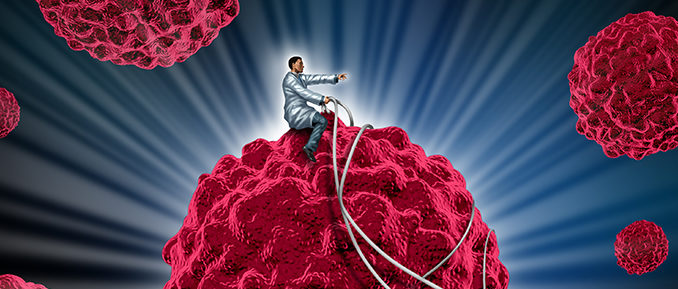
A recent discovery out of St. Jude’s Children’s Research Hospital finds an epigenetic cause to why T-cells fall ineffective in immune responses to cancer and viral infections. T-cells, a type of cell produced by the thymus gland, are a critical combatant in the human immune system. Their main job is to fight foreign invaders such like viruses or cancers by detecting certain proteins on the surface of the intruder cell.
Cancer cells often carry normal proteins which can trick the T-cells into thinking that it is a normal cell, so they are not destroyed. Frequently, patients are treated with immunotherapies such as immune checkpoint inhibitor PD-1, which essentially removes these normal proteins from the cancer cells so the T-cells can attack and destroy it. However, patients often experience a relapse or are non-responsive to these treatments.
In this study, Dr. Ben Youngblood, an assistant member of the St. Jude Department of Immunology, suggests that these immunotherapies often fall unresponsive due to a dysfunction called T-cell exhaustion. “The clinical significance of T-cell exhaustion is huge, because when a person comes into the clinic with a tumor, it is likely they have had it for many months,” he said. The T-cells probably were able to respond to the antigen at first, but the ability to attack it may have been depleted due to a continued exposure over an extended period of time, he explained.
Previous research has connected epigenetics to the immune system as scientists continue to learn more about the interaction between our bodies, our epigenetics, and our environment. For instance, research suggests a certain sugar could epigenetically reactivate a compromised immune system and that eating zinc might influence the immune system via DNA methylation.
Dr. Youngblood credits the epigenetic mechanism DNA methylation with why the T-cells fall unable to respond to tumor antigens. DNA methylation in the T-cells acts as an epigenetic “off” switch, which ultimately shuts the T-cell down, rendering it ineffective. Dr. Youngblood and his team also discovered that this exhaustion process was intrinsic to the T-cells, meaning it occurs within the cell without outside influence. This is a significant finding because it could allow a patient’s T-cells to be extracted from their body, rejuvenated, and reintroduced to the body to continue to combat the cancer or virus.
In the study, the researchers treated mice that had tumors and viruses with the immune check point inhibitor PD-1 and the chemotherapy drug Decitabine. The mice that were treated with PD-1 displayed that in non-exhausted T-cells, cell function could be retained by shutting down the DNA methylation process; however once the cell was exhausted, the epigenetic off-switch was unable to be reversed, therefore rendering the cell ineffective and the subject susceptible to a relapse. In the mice treated with Decitabine, the team discovered that the drug was able to prevent the epigenetic off-switch, which allowed a reversal of exhaustion, ultimately rejuvenating the T-cell.
Dr. Youngblood hopes these discoveries will open the door to using one’s immune system to cure infections such as HIV rather than using drugs and therapy to fight them, which could save a patient both pain and money. In a previous article, we touched on the ability of a demethylating agent to boost chemotherapy effectiveness for a specific type of childhood leukemia by influencing T-cells.
All the discoveries in the study were made using viral and tumor models in mice not humans, so Dr. Youngblood and his team will continue to explore the epigenetic effects in human cancers to see if they will indeed be similar to the findings in mice. The team is also exploring the resemblances in T-cell exhaustion responses to cancer and viral infections like HIV to better determine a cure.
Source: Ghoneim, H et al. (2017). De Novo Epigenetic Programs Inhibit PD-1 Blockade-Mediated T Cell Rejuvenation. Cell, 170(1): 142-57.
Reference: St. Jude Children’s Research Hospital. Pathway to ‘rejuvenating’ immune cells to fight cancers and infections. Science Daily, 27 June 2017. Web.

